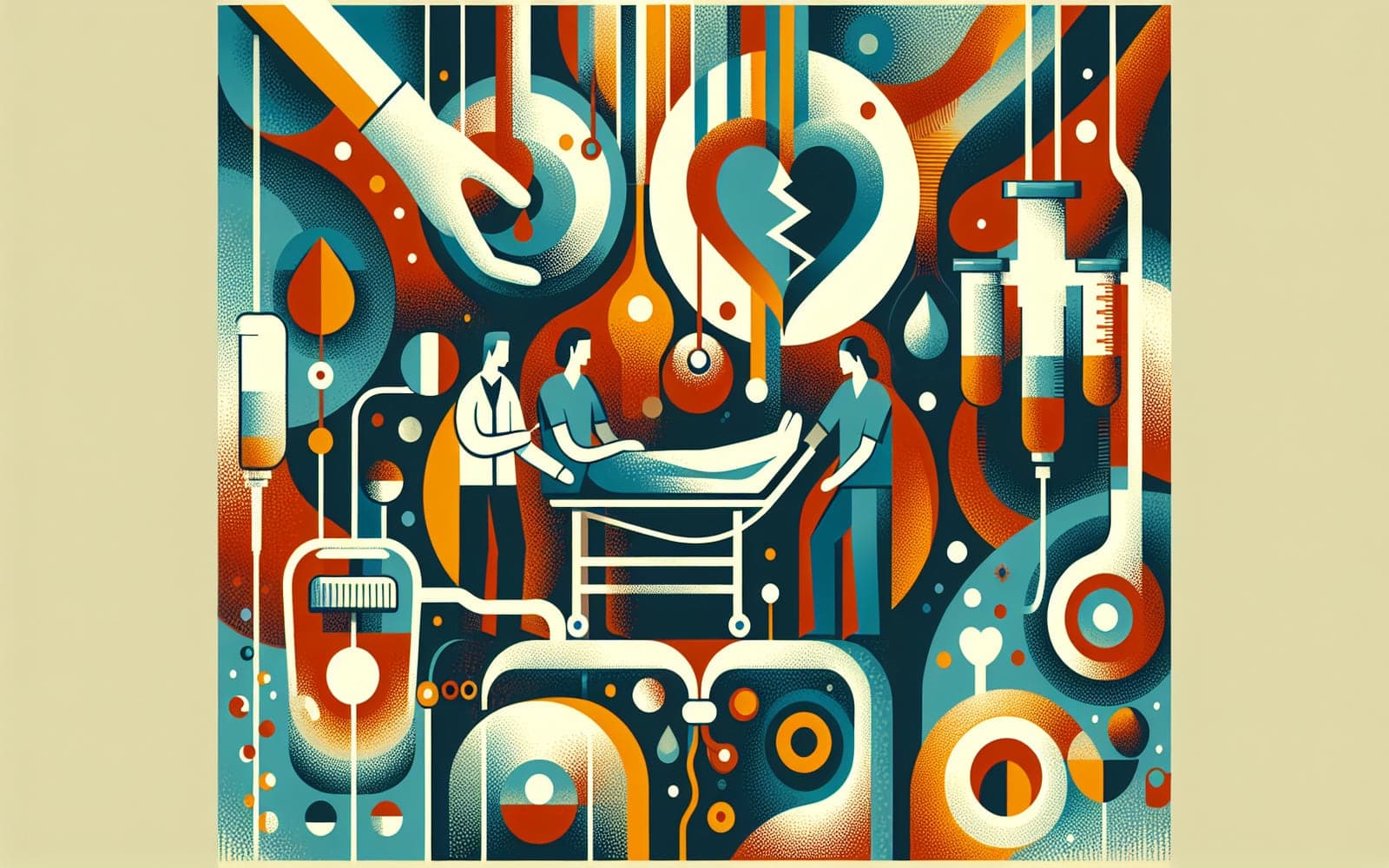Contents
-
Understanding Acute Calculous Cholecystitis
-
Diagnosing ACC
-
Treatment Options
-
Complications and Risks
What Is Acute Calculous Cholecystitis and How Is It Treated?
What Is Acute Calculous Cholecystitis and How Is It Treated?
The Big Picture
Acute calculous cholecystitis is a painful condition linked to gallbladder inflammation due to gallstones. Let's explore what this condition involves and the options available for treatment.
Contents
-
Understanding Acute Calculous Cholecystitis
-
Diagnosing ACC
-
Treatment Options
-
Complications and Risks
Understanding Acute Calculous Cholecystitis
Acute calculous cholecystitis (ACC) is a condition characterized by sudden inflammation of the gallbladder, often accompanied by severe pain, fever, and high white blood cell counts. It is typically caused by gallstones blocking the gallbladder duct, leading to inflammation. While most cases are due to gallstones, some occur without them, called acalculous cholecystitis. The condition can lead to severe complications like gallbladder rupture if not treated promptly.
Diagnosing ACC
Diagnosing acute calculous cholecystitis involves a physical examination where a doctor presses on the abdomen to check for pain. A positive Murphy's sign, which is pain upon pressing the right upper abdomen, can suggest ACC. Imaging tests like ultrasound or cholescintigraphy are used to confirm the diagnosis. These tests help visualize the gallbladder and identify any blockages caused by gallstones.
Treatment Options
The main treatment for ACC is surgery to remove the gallbladder, known as cholecystectomy. In patients who cannot undergo surgery immediately, antibiotics and gallbladder drainage may be used initially. Elective surgery may be performed later once the inflammation subsides. In some cases, particularly with complications, emergency surgery is necessary.
Complications and Risks
ACC can lead to severe complications if not treated, such as gallbladder gangrene or rupture. These complications can be life-threatening and require immediate medical attention. The risks involved in treating ACC depend on the patient's overall health and the severity of the condition. Older patients or those with other health issues may face higher risks during treatment.
FAQs
What causes acute calculous cholecystitis?
Gallstones blocking the gallbladder duct cause inflammation.
How is ACC diagnosed?
Through physical exams and imaging tests like ultrasound.
What is the main treatment for ACC?
Surgical removal of the gallbladder, called cholecystectomy.
Can ACC be life-threatening?
Yes, if complications like gallbladder rupture occur.
Who is at higher risk for complications?
Older adults and those with other health conditions.
Wrapping Up
Understanding ACC is crucial for early intervention and avoiding severe complications.
Additional References
-
Okamoto K, Suzuki K, Takada T, et al. Tokyo Guidelines 2018: flowchart for the management of acute cholecystitis. J Hepatobiliary Pancreat Sci 2018; 25:55.
-
Strasberg SM. Clinical practice. Acute calculous cholecystitis. N Engl J Med 2008; 358:2804.
This article has been reviewed for accuracy by one of the licensed medical doctors working for Doctronic.












